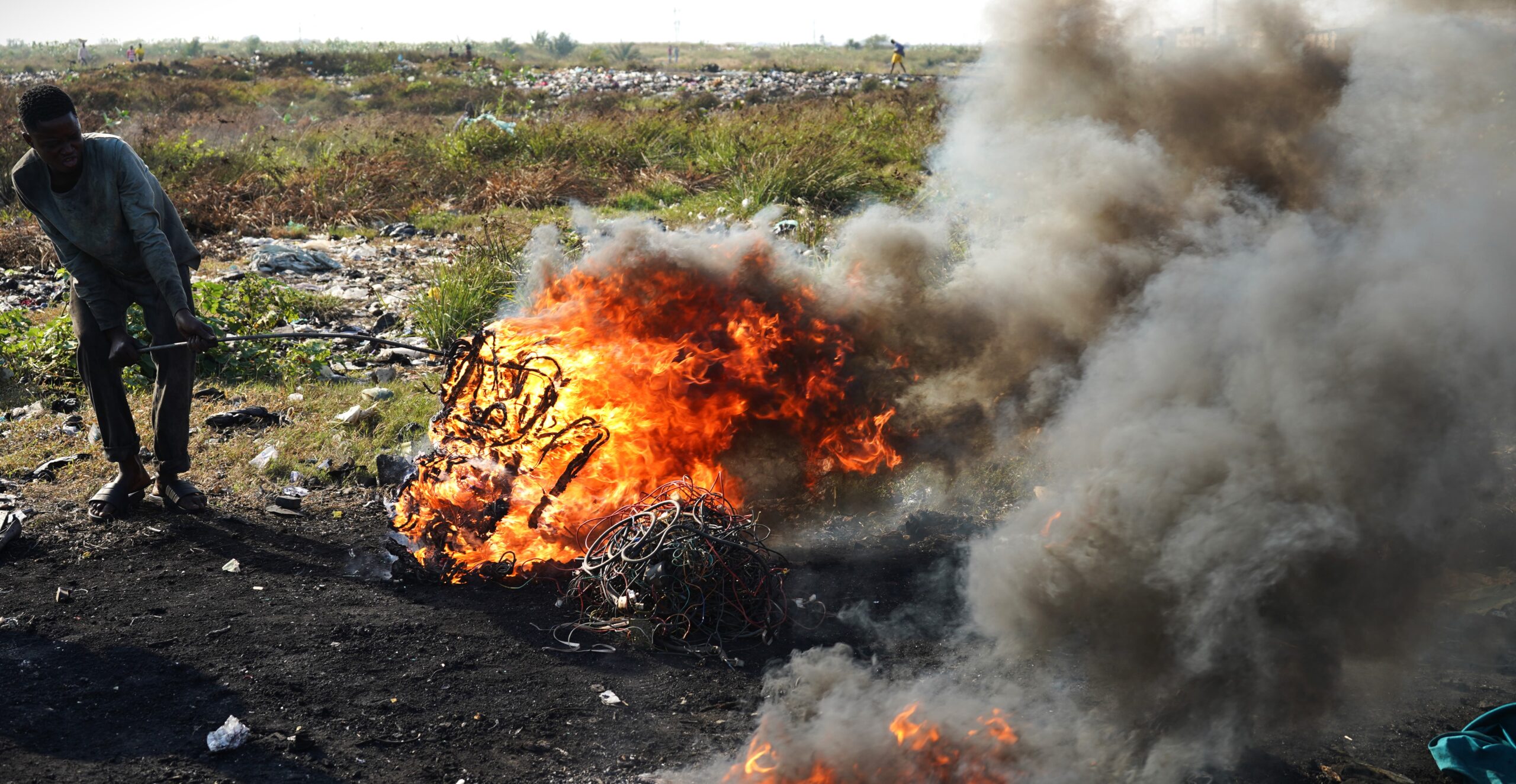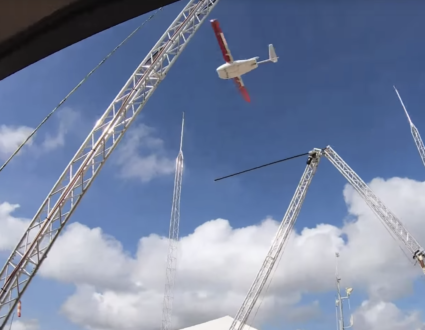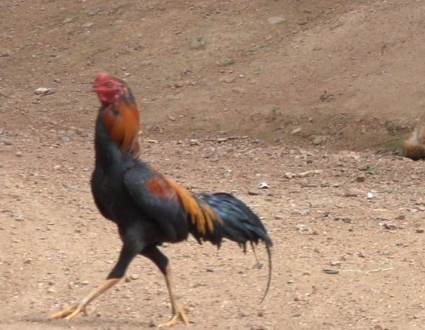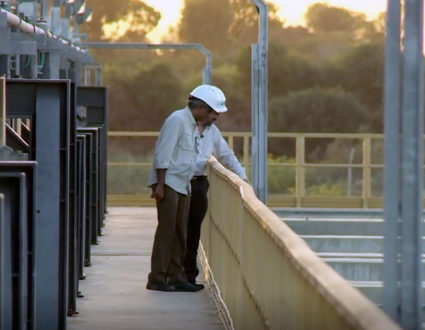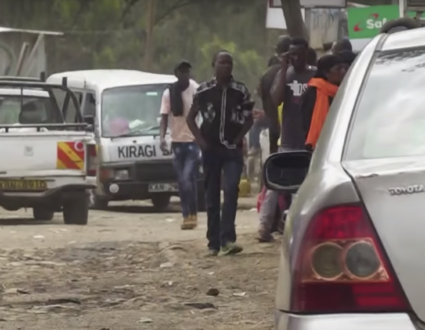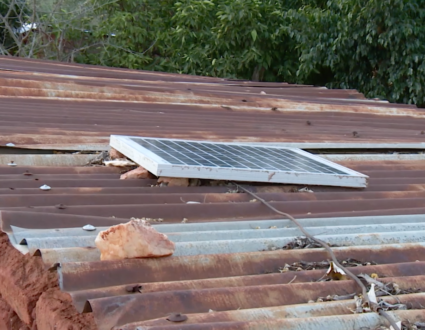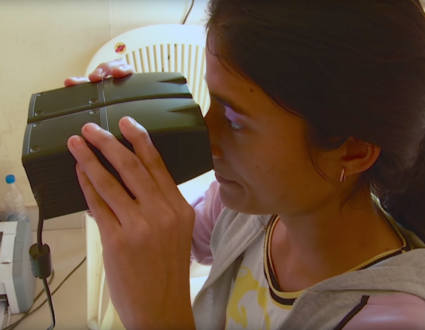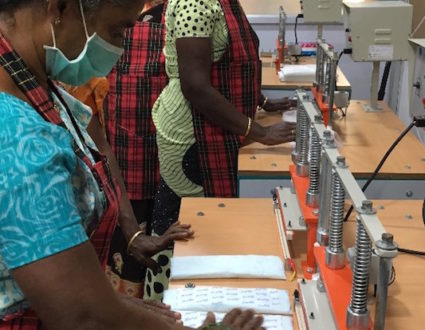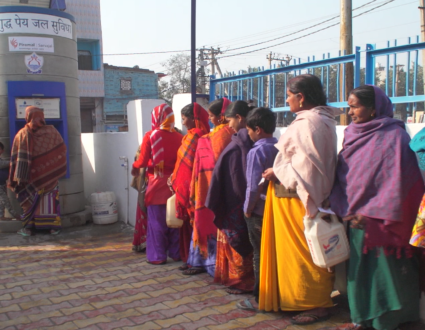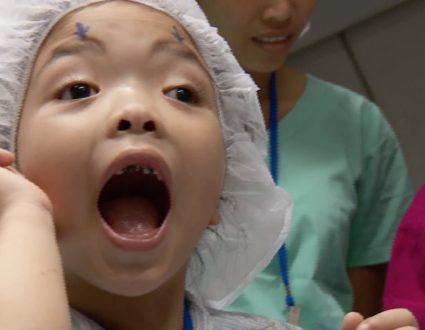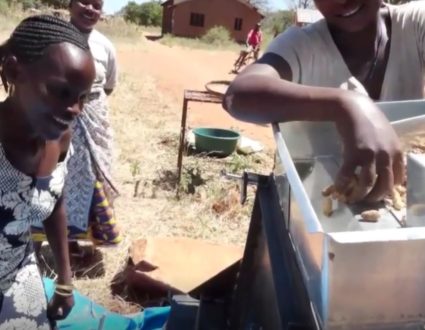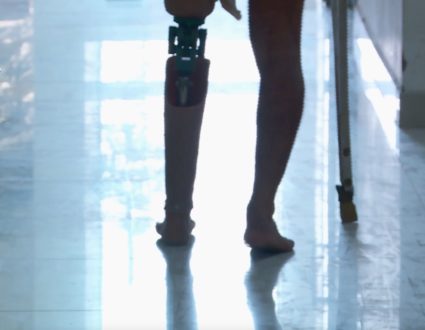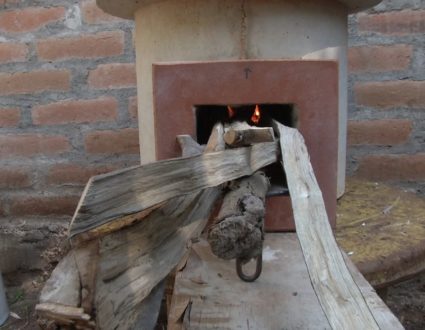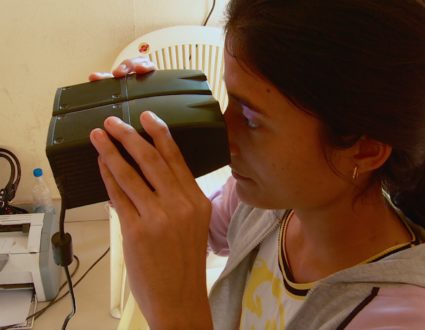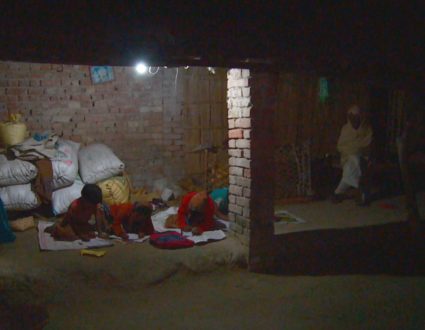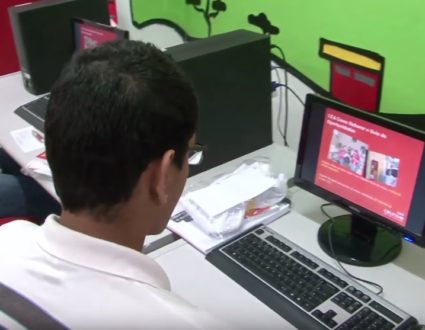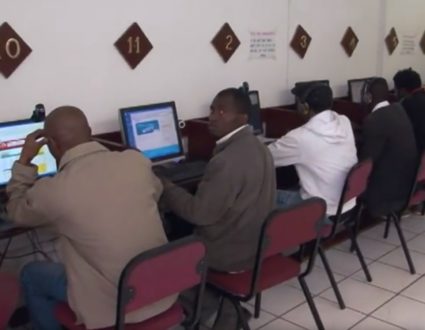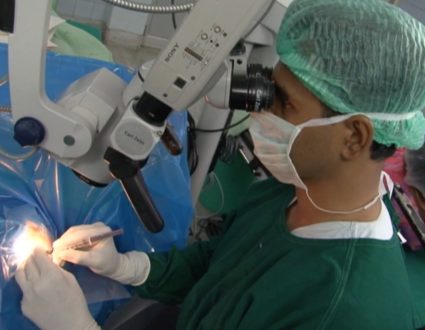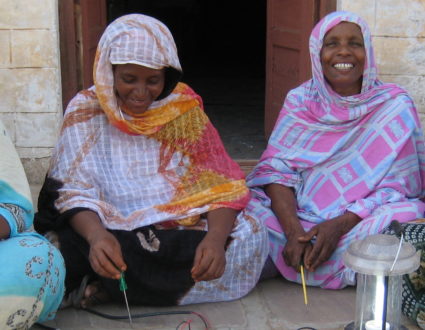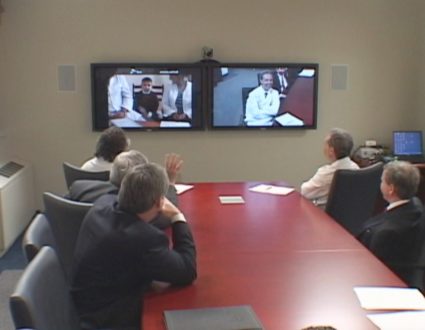Judy Woodruff:
Across the continent of Africa, it turns out many technologies are being used to help raise the standard of living.
Special correspondent Fred de Sam Lazaro reports from Kenya’s capital, Nairobi, where mapping technology is helping to bring services to some of the poorest people on the continent.
It’s the latest in his series Agents For Change.
Fred de Sam Lazaro:
In the maze that forms Africa’s largest urban slum, Zack Wambua’s job is to keep and eye on the nooks and corners. He’s with a group of residents in Nairobi’s Kibera neighborhood who’ve been trained in basic computing technology to record where things like electrical lines, public toilets and community water tanks are, and, more critically, where they are needed.
Zack Wambua:
So, again, just pick a point here.
Fred de Sam Lazaro:
On this day, he was checking on streetlight locations using a small GPS device.
Zack Wambua:
These are the coordinates.
Fred de Sam Lazaro:
So, having a light here is very important to the security of the families that live in this area back here?
Zack Wambua:
Yes. Yes.
Fred de Sam Lazaro:
At the end of his day, the information is added to a database. It’s all designed by an organization called Map Kibera, which provides the information free of charge, so that public and private groups can better provide services.
At least 50 percent of Nairobi’s population lives in slums. And yet, until just a few years ago, busy neighborhoods like Kibera behind me were blank spaces on official maps.
Mapping is one of several tech initiatives to bring attention to people in Nairobi’s vast impoverished neighborhoods, people like Farida Atei, a second-generation Kibera resident. Orphaned at 13, she shares this tiny space with an aunt and sister. She’s 26 now, a single mother who is determined that life will be far better for 4-year-old daughter, Amina.
So, after breakfast, she loads up her backpack and heads to class, a few miles and half-a-world from Kibera, in one of Nairobi’s thriving tech hubs.
She attends AkiraChix, a rigorous, post-high school program that trains young women from poor neighborhoods to be high-tech entrepreneurs.
Farida Atei:
Before I joined AkiraChix, I was just in the dark, in that I didn’t see my life and I didn’t know where I was heading to.
Fred de Sam Lazaro:
So, what do you might want to do once you get your diploma?
Farida Atei:
I want to build Web sites.
Linda Kamau:
We’re trying to see if we can start converting them not just to be women in tech, but, at the same time, to be the drivers and creators of technology.
Fred de Sam Lazaro:
Linda Kamau is a software developer and co-founder of AkiraChix.
Linda Kamau:
Tech is a tool. And so, if you empower them with this tool that will help them get themselves out of the cycle of poverty, then you’re showing them that there’s a path that they can take. There’s something they can use to actually secure themselves.
Fred de Sam Lazaro:
AkiraChix is one of several efforts to find answers in technology amid growing concern about high unemployment among young people — it’s about 20 percent — to bridge the two worlds that Farida Atei inhabits.
This initiative spun off from one of Africa’s most successful tech start-ups called Ushahidi, witness in Swahili. It was born 10 years ago out of the deadly violence that followed elections in Kenya and the limited media coverage of them, says Angela Odour.
Angela Odour:
Most of us, myself, was stuck in our houses. We didn’t quite know what was happening in different parts of the country. So, what a group of four Kenyan bloggers did was basically come together and create a platform that allowed for all ordinary citizens to send in either text messages, e-mails or tweets about things that were happening around them.
Fred de Sam Lazaro:
Since then, the software company has grown exponentially, used in more than 160 countries.
Man:
The magnitude-7 earthquake destroyed a quarter million homes.
Fred de Sam Lazaro:
Helping humanitarian organizations find survivors from the Haiti and Nepal earthquakes, for example, and the tsunami in Japan.
Ushahidi software was also used to monitor election irregularities in 40 countries, including the past two here in Kibera and across Kenya.
Angela Odour:
In 2013, where we received a text message about a group of people congregating around a polling station in a place called Molo, which is known for political strife.
And in a matter of 15 minutes, police officers were deployed.
Fred de Sam Lazaro:
Beyond monitoring elections, technology is becoming a tool to bring accountability to those elected, says Map Kibera’s Joshua Ogure.
Joshua Ogure:
We make the invisible visible. And we show the world that this is what we have, this is what we don’t have. And so the government, for example, we can hold them accountable by saying, look, this is your responsibility.
Fred de Sam Lazaro:
Ogure also runs an online Kibera News Network.
Joshua Ogure:
Kibera News Network.
Fred de Sam Lazaro:
A modest effort to amplify the concerns of ordinary citizens. There’s some evidence of a response.
Vincent Ayako:
In Kibera, we have a deficit of secondary schools.
Fred de Sam Lazaro:
Vincent Ayako is an aide to the member of Parliament from this area. He says they used Map Kibera’s data to get funding for a new high school.
Vincent Ayako:
Map Kibera was able to provide us with a strategic direction to know which areas needed mostly secondary schools.
Fred de Sam Lazaro:
Back at the AkiraChix classroom, Farida Atei also has some specific dreams for her future. She says she’d like to develop a fingerprint technology to stop people from stealing water, a big problem in her neighborhood.
Farida Atei:
So, the owner will just use their fingerprint, and the water will flow to the pipe.
Fred de Sam Lazaro:
So, you want to use tech to stop water piracy.
Farida Atei:
Yes. And, immediately, when someone tries to puts — or tamper with the fingerprint of the owner, the owner will receive a notification message.
Linda Kamau:
I know the Internet of things is great, but it works outside the African continent. If you want your fridge to be telling you when it’s empty, that’s not for this continent. That’s not for this market.
But their problems are, like, very simple. We always tell them that they hold solutions to their own problems.
Fred de Sam Lazaro:
Farida Atei will soon begin an internship with a tech company, the start, she says, of a journey out of the poverty and possibly this neighborhood that she’s known all her life.
For the “PBS NewsHour,” I’m Fred de Sam Lazaro in Nairobi, Kenya.
Judy Woodruff:
Fred’s reporting is a partnership with the Under-Told Stories Project at University of St. Thomas in Minnesota.
Living Off The Map
Until just a few years ago, many busy neighborhoods in Nairobi’s slums were blank spaces on official maps. Special correspondent Fred de Sam Lazaro reports from Kenya on the ways mapping technology is bringing needed services to some of the poorest people on the continent.
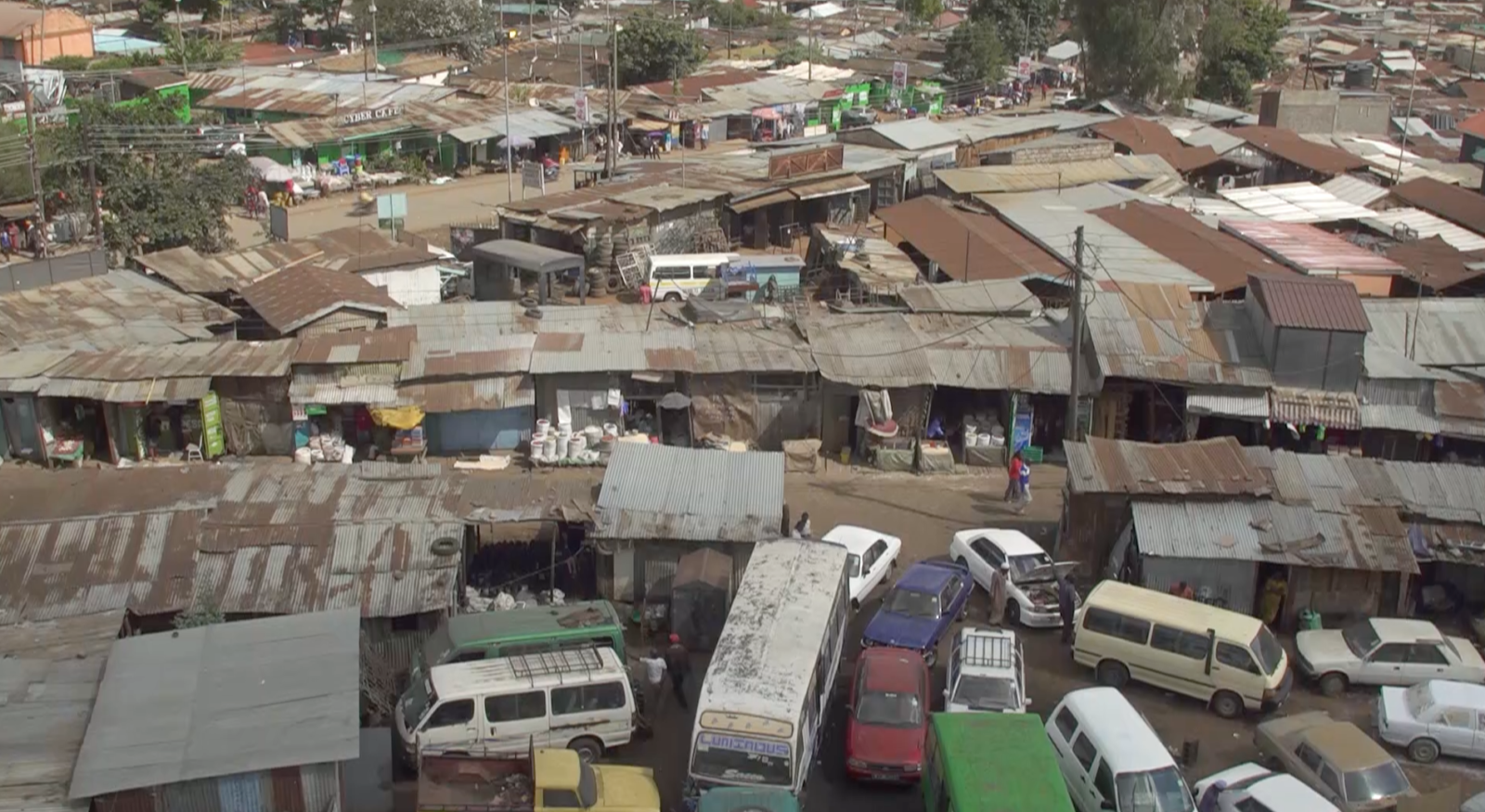
X Marks the Spot
A team of GPS tech trained residents are finding and marking where things like electrical lines, public toilets and community water tanks are, and, more critically, where they are needed.
A Digital Path From Poverty
AkiraChix is one example of the impact of successful tech startups in Kenya. Born out of a social accountability tech start-up called Ushahidi, AkiraChix formed a rigorous, post-high school program that trains young women from poor neighborhoods to be high-tech entrepreneurs
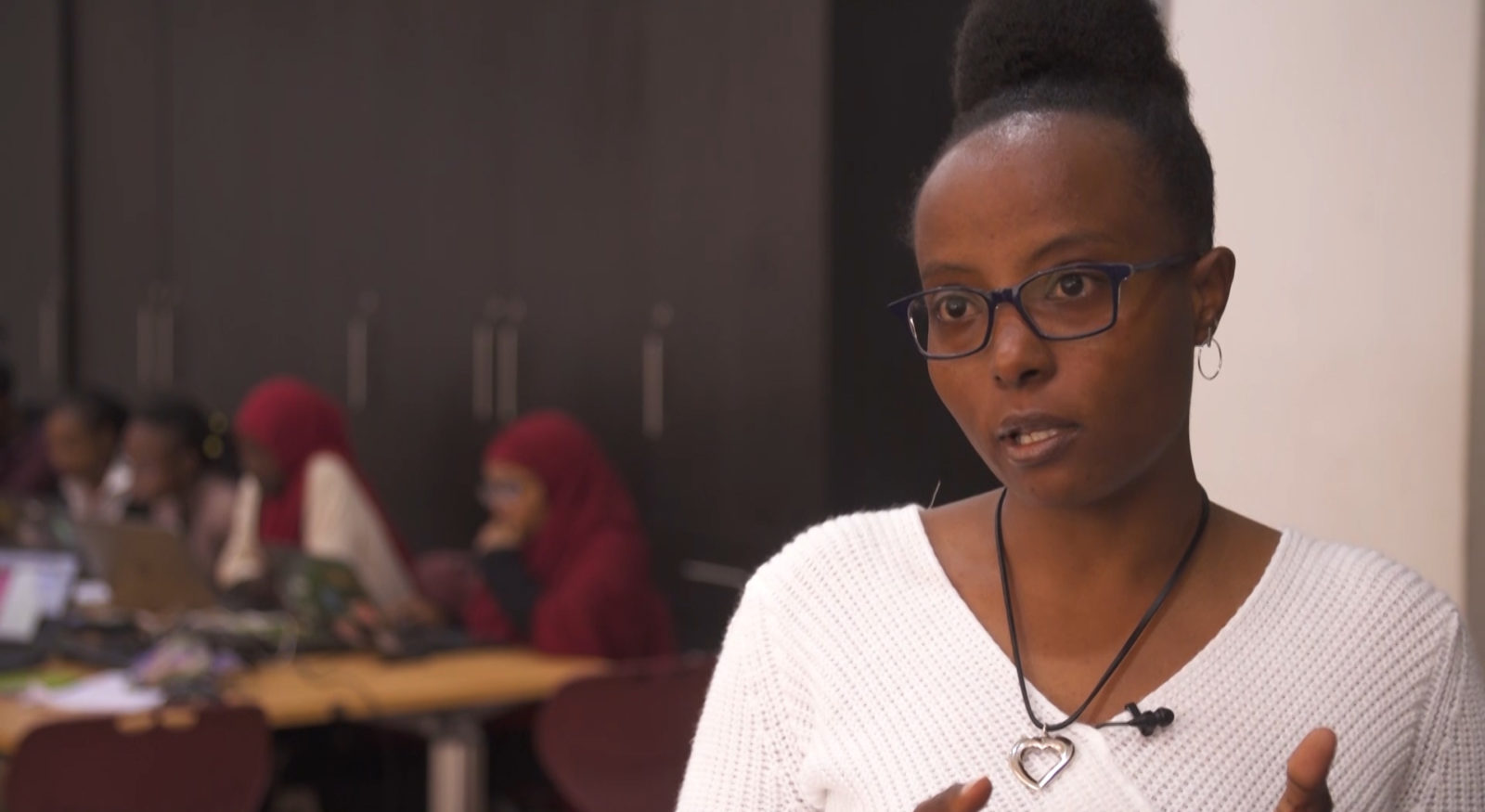
Linda Kamau, Software Developer
“Tech is a tool. And so, if you empower them with this tool that will help them get themselves out of the cycle of poverty, then you’re showing them that there’s a path that they can take. There’s something they can use to actually secure themselves.”


